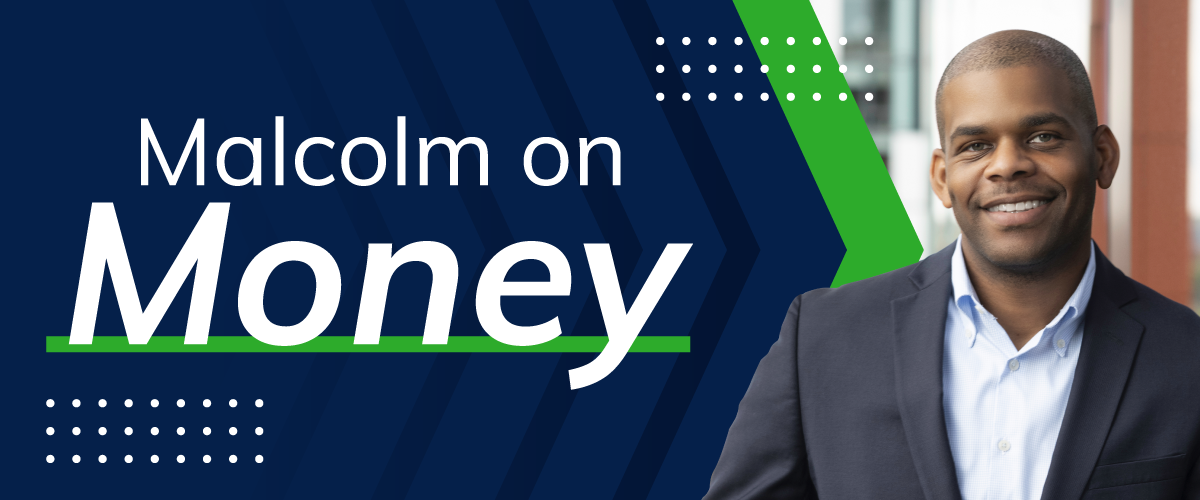Each week, the Malcolm On Money blog is updated with fresh new personal finance related content. Malcolm covers topics such as investments, taxes, insurance, retirement, and equity compensation.
The Malcolm On Money Guide to Restricted Stock Units
This guide is for those who receive equity as part of their total compensation each year, and is intended to help you understand and evaluate the decisions you are presented with, as well as give you the tools to develop your own strategy on how to turn the shares you receive into actual dollars.


When it comes to estate planning, protecting wealth isn’t just about minimizing taxes or avoiding probate. It’s also about managing human behavior over time. And sometimes, naming your children as direct beneficiaries can backfire.
For instance, your young adult children might lack the financial maturity to responsibly handle a large lump sum all at once. By contrast, if the assets flow into a trust, you retain the ability to stagger distributions, using preset milestones (such as at ages 25, 30, 35), or tie distributions to achievements, such as completing an undergraduate degree.
Restricted Stock Units (RSUs) are an increasingly common form of compensation for employees, particularly in high-growth industries like technology, healthcare, and finance. Unlike a cash bonus, RSUs offer the potential of stock market upside —often used to align employee incentives with company performance and retention goals.
But for many RSU holders, the taxation of these awards can be deceptively complex, and even a well-timed sale can turn into a tax trap if not reported carefully. When selling RSUs, it is crucial to keep solid records and share them with your tax professional to prevent being taxed on the same income twice.
The U.S. tax code is in a constant state of flux, making long-term tax planning feel more like educated guesswork than precision strategy. But amid all the uncertainty, one small yet powerful move that nearly every working American can do that will have an outsized impact later is to contribute just a few thousand dollars to a Roth IRA—even if it's just once.
Roth IRAs allow for both tax-free growth and withdrawals in retirement, provided that certain conditions are met. One of those conditions is that the account must be open for five years; but the “five-year clock” doesn’t restart with each contribution. Instead, it begins at year one and applies across all Roth IRAs you hold.
Whether in-person or in online communities, investors love to brag about their portfolio returns. They will dissect earnings calls, monitor valuations and price-to-earnings ratios, back test hypothetical portfolios, and debate the merits of different asset classes all in an attempt to achieve the highest possible return.
But rarely do these investors stop to consider their return on effort. At its core, return on effort is a measure of the amount of time, attention, and emotional bandwidth an investment demands relative to its financial payoff. And in an era where do-it-yourself investing has never been more prevalent, this overlooked metric might be one of the most important differentiators between a quality investment that is either worth pursing or a waste of time.
It’s one thing to watch the company you work for exceed its sales targets and grow its revenues year after year, and another to participate in that success by being rewarded for your contributions. Such an arrangement helps align your interests with those of the company, whereby you want the company to succeed because your equity will increase in value if it does.
For those who are awarded equity as part of their annual total compensation, it’s critical to devise a strategy for those shares well in advance of their vesting. Having a plan for how to handle your shares as they become available will help take the emotion out of managing them. Unfortunately, there is no one-size-fits-all solution when it comes to equity compensation planning.
Creating stock grants that base payouts for executive employees on more than just their continued employment has become the new norm for a growing number of companies. These special stock grants are known as performance shares, and nowadays tech workers who reach executive status are more likely to receive grants of performance share units (PSUs) as opposed to stock options.
While stock options may still be included in the mix of grants received by top-level employees of private companies and startups, PSUs and restricted stock units (RSUs) have overtaken stock options in popularity at public companies due in part to their simplicity. However, performance shares are typically granted in conjunction with RSUs rather than in place of them.
If you’re a senior manager or executive at a publicly traded company, chances are you’re regularly meeting the IRS contribution limit on your 401(k) early in the year and wondering later what’s next. For 2025, the 401(k) contribution limit is $23,000 and is $30,000 if you’re over age 50.
That’s helpful. But when your total compensation includes salary, bonus, equity, and other perks, it’s not nearly enough to replace the kind of income you’re used to living on. For high earners, the gap between what you can save in a traditional retirement account and what you'll actually need in retirement to maintain your standard of living can be enormous.
When a raise at work materially boosts your discretionary income and ability to save—while in your twenties and thirties—cash probably matters most. But in your forties and beyond, especially at the highest marginal tax rates, receiving more of your compensation as equity gives you a shot at exponential growth and is far more likely to boost your net worth over time.
Generally, by the time you’ve reached the executive ranks of a company, a bigger paycheck rarely changes your day-to-day spending capacity in a meaningful way. By contrast, equity can move the needle tremendously. Whether via restricted stock units (RSUs) or performance share units (PSUs), if you’re negotiating a new executive compensation package, prioritize equity over cash.
When evaluating a job offer, it’s easy to get captivated by the headliners, particularly base salary, seniority level, and/or signing bonus. But if your current employer’s compensation package includes restricted stock units (RSUs), you could be leaving a substantial amount of money on the table by walking away too soon.
One of the most overlooked—and potentially costly—mistakes senior managers and executives make when switching jobs is failing to consider the forfeiture value of unvested equity. Career mobility is vital, and sometimes a new opportunity simply can’t wait. But knowing the forfeiture value of your equity gives you critical negotiating power you may not realize you have.
For most married couples, filing a joint tax return is generally simpler, cheaper, and better than filing separately. Joint filers are positioned in more favorable tax brackets and receive greater credits, so it’s advantageous to combine your returns.
The exceptions to this general rule are narrow and highly specific—think unusually large medical bills relative to one spouse’s income, student-loan repayment plans that look only at the borrower’s return, or in the heat of a separation or divorce proceeding. In less common cases, a separate return can be a rational choice even if it means losing out on some breaks.











